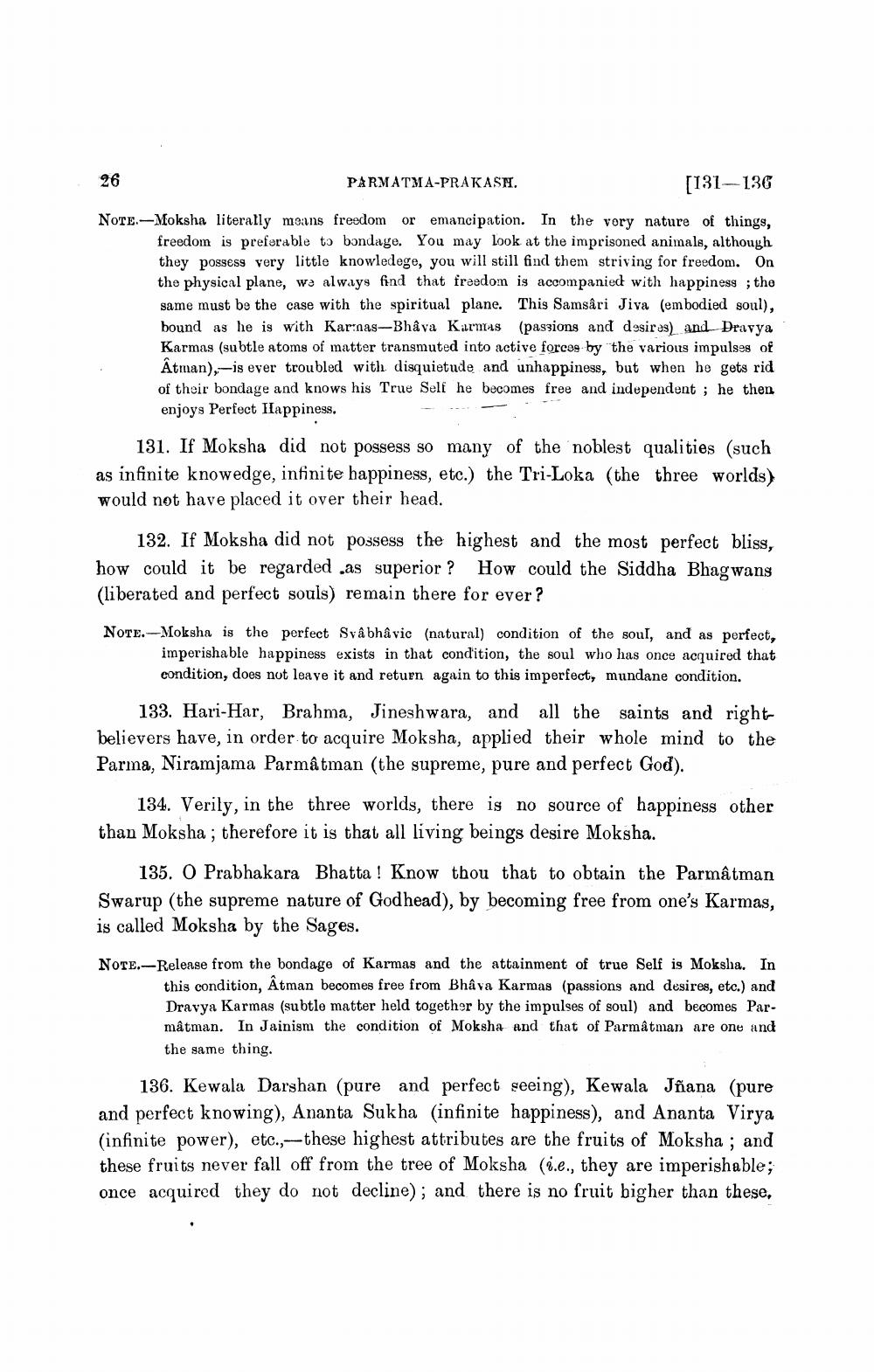________________
26
PARMATMA-PRAKASN.
1131-136
NOTE.- Moksha literally means freedom or emancipation. In the vory nature of things,
freedom is preferable to bondage. You may look at the imprisoned animals, although they possess very little knowledege, you will still find them striving for freedom. On the physical plane, we always find that freedom is accompanied with happiness ; the same must be the case with the spiritual plane. This Samsari Jiva (embodied soul), bound as he is with Karnas-Bhava Karmas (passions and desires) and Dravya Karmas (subtle atoms of matter transmuted into active forces by the various impulses of Ātman),-is ever troubled with disquietude and unhappiness, but when he gets rid of their bondage and knows his True Self he becomes free and independent ; he then enjoys Perfect Ilappiness.
131. If Moksha did not possess so many of the noblest qualities (such as infinite knowedge, infinite happiness, etc.) the Tri-Loka (the three worlds) would not have placed it over their head.
132. If Moksha did not possess the highest and the most perfect bliss, how could it be regarded as superior? How could the Siddha Bhagwans (liberated and perfect souls) remain there for ever?
NOTE.--Moksha is the perfect Svâbhâ vic (natural) condition of the soul, and as perfect,
imperishable happiness exists in that condition, the soul who has once acquired that condition, does not leave it and return again to this imperfect, mundane condition.
133. Hari-Har, Brahma, Jineshwara, and all the saints and rightbelievers have, in order to acquire Moksha, applied their whole mind to the Parma, Niramjama Parmatman (the supreme, pure and perfect God).
134. Verily, in the three worlds, there is no source of happiness other than Moksha; therefore it is that all living beings desire Moksha.
135. O Prabhakara Bhatta ! Know thou that to obtain the Parmatman Swarup (the supreme nature of Godhead), by becoming free from one's Karmas, is called Moksha by the Sages.
NOTE.-Release from the bondage of Karmas and the attainment of true Self is Moksha. In
this condition, Atman becomes free from Bhava Karmas (passions and desires, etc.) and
Dravya Karmas (subtle matter held together by the impulses of soul) and becomes Parmâtman. In Jainism the condition of Moksha and that of Parmatman are one and the same thing.
136. Kewala Darshan (pure and perfect seeing), Kewala Jñana (pure and perfect knowing), Ananta Sukha (infinite happiness), and Ananta Virya (infinite power), etc.,--these highest attributes are the fruits of Moksha ; and these fruits never fall off from the tree of Moksha (i.e., they are imperishable; once acquired they do not decline); and there is no fruit bigher than these,




